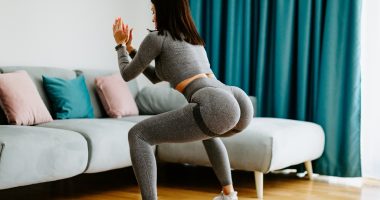Menstrual Cycle And Periods: While the former is a 28-day long cycle, the latter is just one phase of it
A woman’s body goes through an endless cycle of hormonal changes. Starting from the puberty up till menopause, a woman’s body is on a roller coaster ride of hormone-driven actions. While conversations around periods have taken a turn for the good, it is the not the only phase of our reproductive cycle that we must be aware of.
The 28-days long reproductive or fertility cycle that affects a woman is called the menstrual cycle. While a menstrual cycle has four phases to it, menstruation or what we call periods is one part of it when the body sheds the uterus lining through vagina. It happens when the pregnancy doesn’t occur.
Understanding your menstrual cycle
The purpose of a menstrual or reproductive cycle is to facilitate conception in a woman. From releasing an egg to preparing the uterus to conceive, a typical menstrual cycle is supposed to last 28 days. A woman’s reproductive cycle can be broadly divided into four phases, the menstrual phase, the follicular phase, the ovulation phase and the luteal phase. The length of each phase differs from woman to woman.
Follicular phase- This phase overlaps with your periods. During this phase, your ovaries will be directed to produce sacs called follicles. These follicles carry eggs. Among all produced, only one egg will get mature and become ready to be released. This phase might last for 15 or 16 days on average.
Ovulation phase- During this phase, your ovary will release the egg which will travel near the uterus, all ready to be fertilized by a sperm. This is a day- long phase and might happen right in the mid of your menstrual cycle. It is the only time when you can get pregnant in your entire menstrual cycle. After this, the egg will either get fertilized or dissolved.
Luteal phase- This phase starts just after ovulation. The uterus will start preparing for the fertilized egg. There might be an increased supply of blood and nutrients to the uterus. If the egg is fertilized by the sperm, the body will start preparing for the pregnancy. If not, then during this stage you might suffer some PMS symptoms such as bloating, cravings, mood changes and others. This might happen because the pregnancy supporting hormones might suddenly see a fall.
Menstrual phase- When the pregnancy supporting hormones will fall suddenly, the uterus lining prepared in anticipation of pregnancy won’t be able to hold and sustain itself and will be shed off along with the non-fertilized egg. This phase is what you recognize as periods.
No menstruation and pregnancy: What is the connection?
Since a cycle has no beginning or end, the menstrual phase of the reproductive cycle can be taken as the first or last phase. This phase happens when there is no pregnancy and the conception favouring hormones are two low to sustain the cushioned environment of the uterus that was all set to receive the fertilized egg. This is a phase of shedding where the body is laying off the uterus lining along with the non-fertilized egg. If the egg was fertilized by a sperm, then pregnancy would occur. When a woman conceives, the pregnancy supporting hormones will not run low and rather sustain the uterus lining for development of the embryo. In this case, the body has no need to get rid of the lining or the egg, hence your periods gets terminated for 9 months. Home Also read | What Is Exercise-Induced Bronchoconstriction? Symptoms And Management









